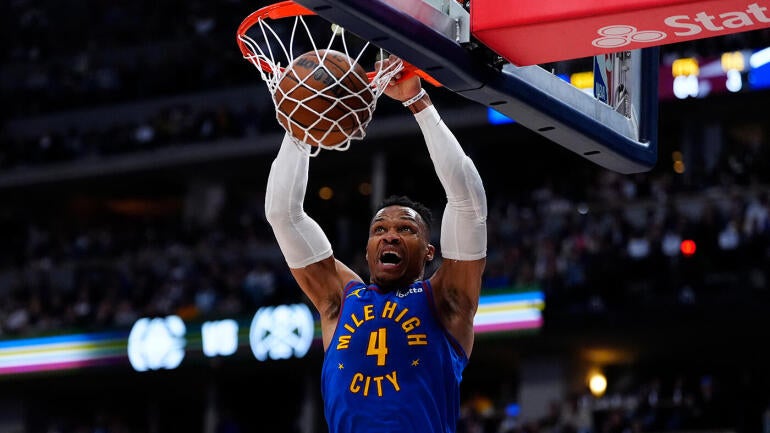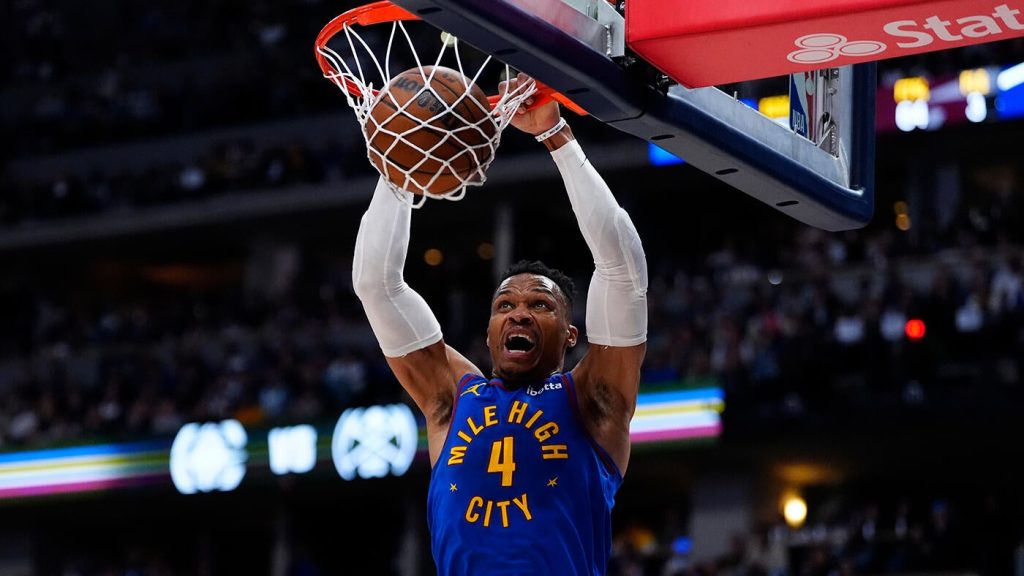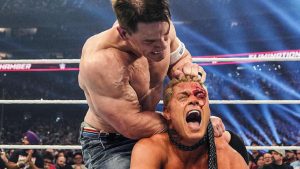Westbrook’s chaos both helped and hurt Denver in Saturday’s opener vs. the Clippers

Russell Westbrook had bad games. He’s had great games. He’s just never had a quiet one.
Nobody has ever forgotten that he was on the floor, for better or worse. His impact in either direction is tangible no matter what the box score says. In the wise words of Denver Nuggets interim coach David Adelman, “Russ is Russ.”
And make no mistake, Russ was emphatically Russ in Game 1 of Denver’s first round series against the Los Angeles Clippers. It was perhaps the most Russ he’s ever been. That was true all game, but never has the Russell Westbrook experienced better been encapsulated by a single sequence as it was at the end of Game 1.
With 24 seconds remaining in regulation and the Nuggets down two, Nikola Jokić kicked the ball to Westbrook in the corner for one of the biggest 3-pointers of his career. Westbrook is, quite possibly, the worst high-volume 3-point shooter in NBA history. His own fans have audibly begged him not to take big shots in his home arena. So what did Westbrook do? Calmly sank the triple to give Denver a two-point lead.
A James Harden floater on the other end tied the score, giving Denver one last chance to win. Once again, the ball found its way to Westbrook behind the arc. This time, however, he got caught playing indecisively. The Nuggets didn’t even get a shot up.
This is post-prime Westbrook distilled into a bit more than 30 seconds of basketball. On any given play, almost anything is possible. He can miss 10 straight shots and win you the game with the 11th. He can brick an open layup and hand the other team a free fast-break. There is going to be good. There is going to be bad. There is going to be ugly. And a play-to-play basis, you have no way of knowing which you’re going to get.
Fortunately, it was mostly the good on Saturday. Despite 5-of-17 shooting and plenty of those layups-into-fast breaks for the Clippers, Denver won his minutes by seven points in what was ultimately a two-point victory. He finished the game with four offensive rebounds, but it felt like 14 considering the stakes involved in the plays in which they came. Adelman was particularly complimentary of Westbrook’s defense, which has been up-and-down for basically his entire career.
“Defensively he was absolutely incredible,” Adelman said of Westbrook. “He was playing free safety out there. I thought a lot of the reasons why the turnovers happened, even if it wasn’t him forcing it, just the way he was roaming around and impacting the game, you know. It was great for us.”
The Nuggets forced nine more turnovers than the Clippers did and, more importantly, they scored 20 more points off of turnovers. That chaos swung the game.
“Chaos” is an appropriate descriptor for what late-career Westbrook brings to a team, and that’s not as negative as it sounds. It’s all about context. There are a lot of reasons Westbrook didn’t fit with LeBron James and Anthony Davis on the Los Angeles Lakers. The single biggest was his salary. All three of them were making max money, so the Lakers had no further resources to allocate anywhere else. With 10 minimum salaries on their roster, they just lacked good players. At that point, the expectations and demands were too high. The Lakers were stretched too thin elsewhere to survive the bad from Westbrook, so they were unable to truly benefit from the good.
It’s an entirely different situation in Denver. Westbrook is making the minimum. Expectations are far lower. And perhaps most importantly, the absence of depth has been a steady trait for the Nuggets for practically Jokić’s entire career. If Westbrook came in and played badly, well, what was the harm? The rest of their bench would have played badly as well. They allocated no meaningful resources towards his acquisition besides a roster spot. The risk-reward calculus was entirely different, and that’s shown in Denver.
When Michael Malone was fired, one of the reported points of tension between he and former general manager Calvin Booth was how much he was using Westbrook. In Adelman’s first game as head coach, he gave Jalen Pickett 31 minutes at point guard to Westbrook’s 17. At that point, it looked as if Adelman might be shifting away from Westbrook entirely.
What we can now surmise is that Westbrook’s role is going to change on a day-to-day basis. On Saturday, Michael Porter Jr. wasn’t giving the Nuggets much of anything. Adelman realized he needed to take the Westbrook risk because he couldn’t win without the possible Westbrook reward.
He delivered on Saturday, but it’s possible that he only plays 17 minutes again on Monday. Having Westbrook for the minimum grants Denver that privilege. They aren’t pot committed. They can feel out the good versus the bad in the moment and make the decision that makes sense on a given night. It’s controlled chaos, not organization-consuming chaos.
Outside of his superstar days, that’s the best any Westbrook employer can hope for. The notion that he was ever going to erase the bad from his game was a pipe dream too many of his former teams fell for. But the good is still there, and when properly balanced with a team’s needs on a given night, as Game 1 proved, the Russell Westbrook experience can still be pretty damn exciting.








